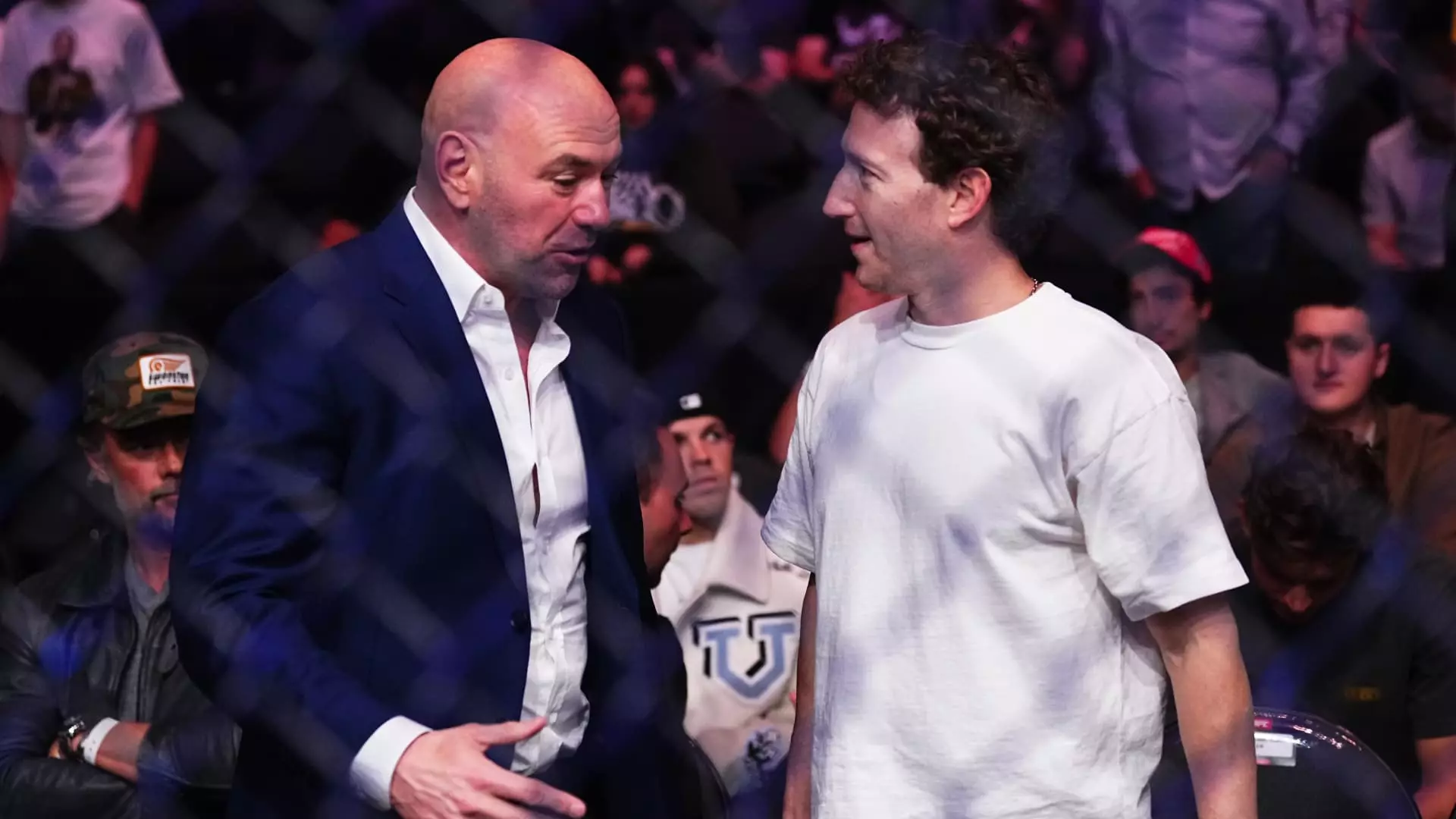The recent partnership between TKO Group’s UFC and Meta represents more than just a business deal; it reflects a significant shift in how sports, technology, and culture intersect in the modern age. While UFC President Dana White touts the collaboration as being innovative—hinting that fans will witness breakthroughs that are nothing short of spectacular—one must ponder what is lost when authenticity yields to corporate synergy. The notion that Mark Zuckerberg, a titan of digital conglomerates, could hold sway in a realm as visceral and raw as mixed martial arts raises significant questions about the direction of both industries.
This partnership, which cleverly intertwines the UFC with Meta’s wide array of platforms, may cater to the wants of modern fans rooted in digital engagement, but it risks overshadowing the authentic experience of sports. UFC, a spectacle known for its grit and fierce athletes, now faces an identity crisis as it leans heavily into a corporate narrative. It begs the question: Will the fierce nature of mixed martial arts be diluted by technology that prioritizes engagement metrics over the gritty authenticity of the sport itself?
The Corporate Playbook
Financially, the details of the deal remain shrouded in mystery; however, the implications are clear. The UFC has declared Meta its “official fan technology partner,” marking a strategic alignment that could potentially transform the nature of fan interactions. The branding overlays within the Octagon, intended to promote this partnership during high-stakes pay-per-view events, maximize visibility but risk commodifying a cultural phenomenon originally rooted in fighting spirit.
What does it mean when Meta becomes an official marketing partner alongside the UFC’s own identity? One might argue that it equates to a dilution of the sport’s authenticity, as it becomes increasingly intertwined with the world of corporate advertising and algorithm-driven content. The UFC’s decision to capitalize on Meta’s technology—spanning AI, wearables, and social media—might enhance fan engagement, yet, it beckons a future where raw emotion and personal connection to the sport could be dimmed by a relentless focus on profitability.
The Shades of Influence
Moreover, the interplay of corporate power and personal relationships is palpable in this venture. White’s close relationship with Zuckerberg—evident as White joined Meta’s board—brings a unique edge to the partnership. While this collaboration may seem appealing, it poses an unsettling reality: critical decisions about the sport’s direction could be influenced by personal connections rather than the athletes and fans it represents. The question hangs heavy: Is this merger about elevating athletes, or is it more about leveraging Zuckerberg’s digital empire to create an unending cycle of monetization?
This partnership, with Meta’s upcoming Threads platform promising exclusive UFC content, raises further questions regarding data privacy and the commodification of user experience. A relationship where data points feed both engagement and targeted advertising becomes a slippery sledding downhill. Will fans become mere vectors for corporate interests, losing the unique thrill of experiencing the fight firsthand?
The Male Archetype and Alternative Perspectives
The rhetoric surrounding Zuckerberg’s vision for the culture of mixed martial arts adds yet another layer to this complex narrative. His assertion that corporate culture could benefit from “masculine energy” fits seamlessly into the UFC’s broader branding strategy, leveraging traditional perceptions of strength and aggression. However, such sentiments beg the challenge; does the MMA community truly need to embrace these archaic notions of masculinity to thrive in today’s environment?
This alliance, seemingly fueled by personal ideologies and nostalgic perceptions of strength, risks alienating fans who do not subscribe to such restrictive notions. The UFC’s brand, once a bastion of fierce competition focused solely on the athletes and their journeys, could become a vehicle for corporate ideologies that do not resonate with the broader community.
The UFC’s pivot towards Meta, celebrating a cultural fixation on aggressive masculinity while dismissing the emerging conversations around mental health, inclusivity, and alternative forms of strength presents a troubling juxtaposition. While there is excitement about new levels of fan engagement and technological interaction, one cannot help but wonder if the heart of the sport—intensity, struggle, and community—will be left behind in this chase for corporate sponsorship and market share. As MMA continues to grow, it stands at a crossroads, facing the tangible risk of losing its core identity amidst corporate interests.

Leave a Reply